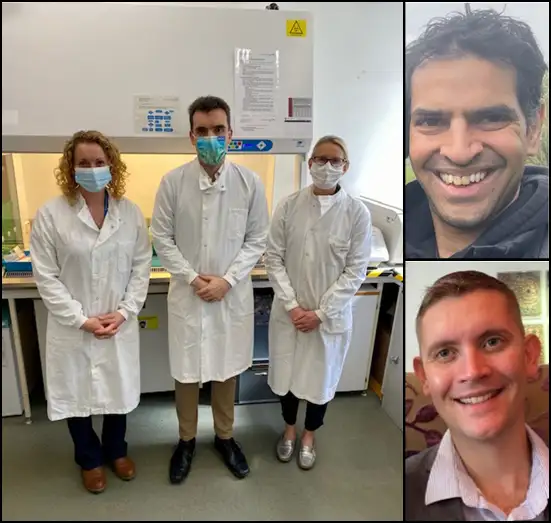Quicker and less invasive tissue sampling for lung and pancreatic cancer
A team of researchers has published findings that show mutations in non-small cell lung and pancreatic cancers can be rapidly and effectively detected by carrying out testing on smaller tissue samples than those taken in current practice.
This new method of testing can greatly benefit patients with non-small cell lung cancers as it can be performed on cell samples obtained from minimally invasive, low risk day case procedures and speeds up the time it takes to diagnose and refer patients for treatment.

The study also looked at using blood samples to detect specific mutations seen in non-small cell lung cancer. This is a real advantage for patients who are unable to undergo more involved procedures to obtain samples.
Reliable detection of specific mutations was seen in cancerous pancreatic samples using the Biocartis testing platform. These mutations were found to be present in 80% of the samples, making this is an ideal target for a new therapy. Research into treatments for the mutations is currently underway globally.
The team, pictured, from RCHT, was led by Leonie Wheeldon, Consultant Biomedical Scientist in Diagnostic Cytopathology said. “The study has been a great example of results through collaborative working. The support from the research, development and innovations team, the clinicians that consented the patients and performed the procedures to obtain the samples, the patients for participating, the team in the lab for preparing the samples, running the tests, and reporting the results and the input from the co-authors, has enabled the success of this project.
Detecting the most common mutations sooner helps to reduce patient anxiety, and, in cases where a mutation is detected, the best treatment plan can commence sooner, thereby removing unnecessary delays as well as suboptimal or unnecessary treatments.”
Leonie and the team have plans for other research and are currently in the process of setting up another study looking at remote diagnostic assessments. If successful, the results could lead to new services being offered at community hospitals. The team has been fortunate to secure £25,000 worth of funding from the Cancer Alliance for equipment needed to conduct the study.

